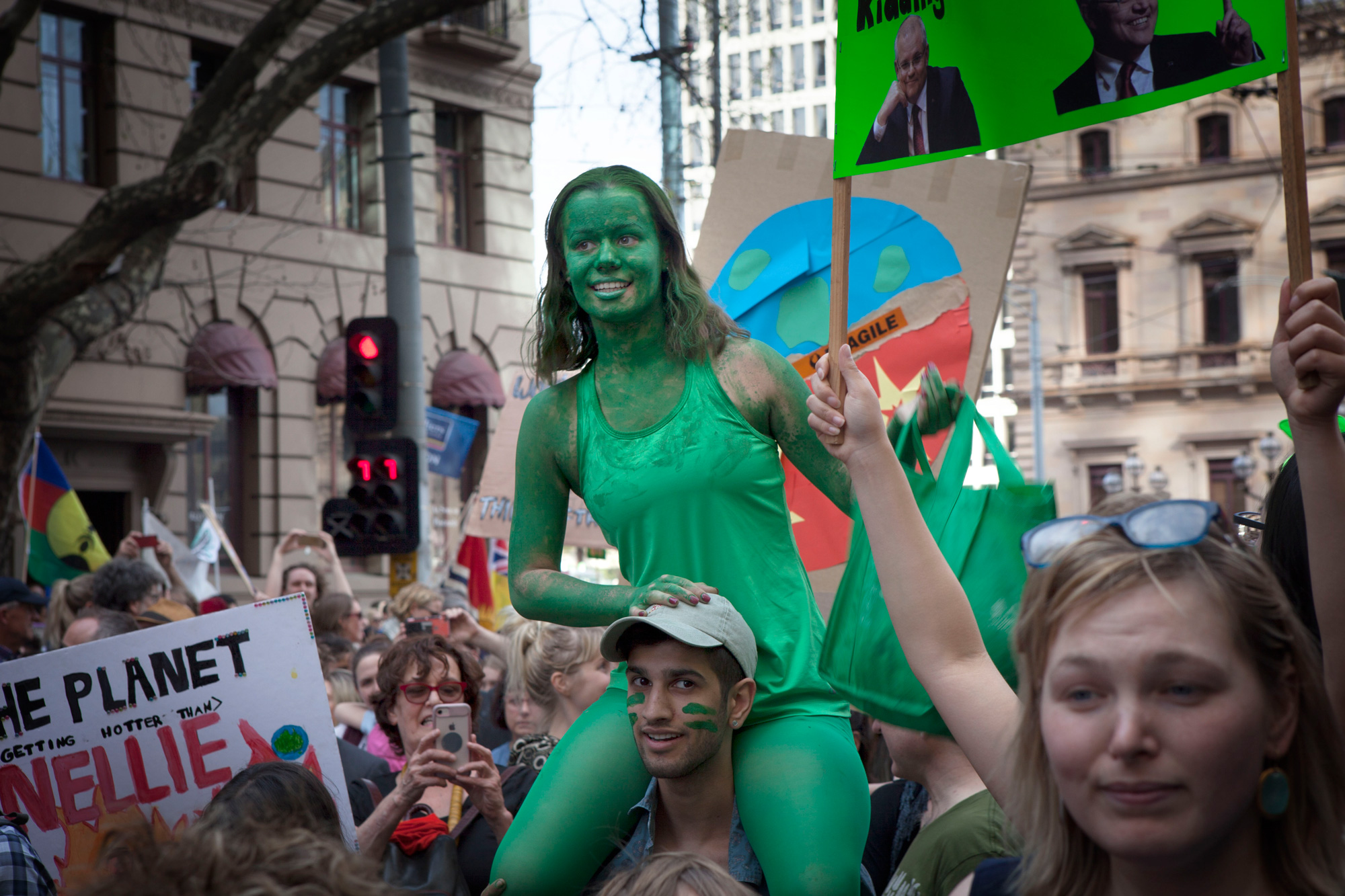Step inside, and The Hotel Derrimut in Sunshine smells like frying oil and stale beer.
The overhead lights are dim, but the gaming room pulses and pops with the bright flashes of poker machines. The grey carpet looks blotted and stained, but no one seems to mind. The displays on the faces of the machines whirl in rhythm, a symphony of dings and clicks playing across the room as 13 patrons sit solitarily at their machines on a Tuesday night.
Many have been sitting slumped on their plastic-leather high stools for a couple of hours now, only getting up to use the bathroom or stroll out the front of the pub for a smoke. They return to slot in coin after coin, resolute in their conviction that attendance will reap some divine reward, as if every pull of the machine is paying worship to some ancient deity.

The Derrimut Hotel in Brimbank where Mark and James – self-described ‘frequent gamblers’ – are regulars. Asked about their gaming routine, they say that they gamble three or four days most weeks, for a few hours each time. “It’s a way to get out and see mates, there’s a community down here,” says James.
Sunshine, in Melbourne’s west, is located in the municipality of Brimbank. The Victorian Gambling and Casino Control Commission (VGCCC) data shows that gamblers in Brimbank have lost approximately another $130 million so far this financial year. The figures also reveal that $1.29 billion has been lost on electronic gaming machines in the municipality of Brimbank between July 2012 to July 2022.
Responding to these numbers, the Brimbank council passed a unanimous motion in February urging the Victorian government to introduce cashless gambling cards and pre-commitment rules. The pre-commitment scheme would see that every gambler is given a limit on how much they are able to lose over a year. If gamblers then wanted to increase their limit, they would have to go through an application process to see if they are eligible.
Brimbank’s Cr Virginia Tachos, who proposed the motion, has seen how poker machines are affecting her community and wants to see regulation. “The social cost is something that we all wear as a community, local government especially,” she told The Citizen. “You have poverty, you have kids turning up to school with no uniform, books, sometimes lunch, because their parents have gambled the money.
“You have crime, you have drugs in our community, there’s a high prevalence of all of that and family violence as well.”
Brimbank is not the only council to resort to asking the state government to reform poker machines to stem the damage to communities. In 2020, a joint letter to Premier Daniel Andrews was signed by seven municipal councils from across the metropolitan area – Casey, Hume, Monash, Whittlesea, Darebin, Dandenong, and Wyndham. It urged the state government to follow the poker machine reforms seen in Tasmania and New South Wales.
This year’s election in NSW brought increased scrutiny on gambling machines. A report published by the NSW Crime Commission recommended that cashless cards be introduced to stem money laundering in the industry. The states former premier Dominic Perrottet had promised to introduce mandatory cashless gaming cards in NSW across all gambling venues by the end of 2028.
According to a report by the Australian Institute, one-fifth of the world’s one million legal poker machines can be found in Australia and half of those are in NSW. The state’s new Labor premier, Christopher Minns, has announced a cashless card test for 500 poker machines in NSW, that is less than 1% of the state’s 90,000 electronic gaming machines.
Tasmania has also announced reforms. It will introduce a $5000 a year mandatory pre-commitment system that will prevent individual gamblers spending more than that amount unless they successfully apply to increase their limit.
Tachos says she can see the grip that poker machines have on her community in Sunshine every day. “They’re prevalent in most of the pubs and some of the clubs. Not all of them, but there seems to be a huge concentration, over 950 in our municipality. They are quite concentrated in the most disadvantaged corridor which is from Kealba through to Sunshine.”
Following recommendations laid out in the Finkelstein royal commission into Crown casino, which were released in October 2021, the Victorian government will implement reforms and mandatory pre-commitment rules for all the 2,628 poker machines in the casino. But Tachos is concerned that this will push money laundering and criminal activity into suburban pubs and clubs.
“What’s stopping all these issues that we know are happening out in the casino from happening in the clubs and pubs?,” she says. “I’m pretty sure there’s money laundering going on in pubs and clubs as well.”
Gambling clubs and hotels in Victoria have been working under a variation of a pre-commitment system for problem gamblers called YourPlay. YourPlay has been widely criticised as ineffective, with gamblers in Victoria on track to lose more than ever to poker machines. YourPlay is an optional card that gamblers can elect to use if they wish to set a daily gambling limit and avoid using cash.
A report commissioned by the Victorian Department of Justice in 2019 found that YourPlay only covered $1 in every $10,000 that was put into poker machines in Victorian hotels and clubs in 2017-18. There are 27,291 pubs and clubs with poker machines in Victoria and they are on track to bring in a combined total of over $3 billion of revenue for the gambling industry this financial year.
Patrick Gallus, a representative of Responsible Gambling Victoria Foundation, points to well recognised and accepted published research – cited in the foundation’s submission to the casino royal commission – is associated with increased risk of harm.
“Practices that limit spend and frequency of use, like pre-commitment schemes, are associated with lower occurrences of harmful gambling,” says Gallus.
On the cream-coloured steps outside the Derrimut Hotel, Mark and James – self-described ‘frequent gamblers’ – chat with The Citizen as they take a smoko break. Asked about their gaming routine, they say that they gamble three or four days most weeks, for a few hours each time. “It’s a way to get out and see mates, there’s a community down here,” says James.
Questioned about their attitudes toward a government instigated pre-commitment scheme, they both indicate they are not particularly bothered by the idea. “We don’t have a whole lot of say over it,” says Mark, butting out his cigarette and walking back into the hotel.
But the Gambling and Alcohol Lobby has been fighting against poker machine reform for decades in Australia. When the federal parliament was hung after the election in 2010, Labor leader Julia Gillard did a deal with Tasmanian independent and anti-gambling campaigner Andrew Wilkie to enact a mandatory pre-commitment scheme at a national level.
Wilkie was one of four independent MP’s whose support secured a minority government for Labor. This was after a 2010 Productivity Commission report found that 40 cents of every dollar lost in poker machines was lost by problem gamblers. But in 2012 Gillard reneged on the deal with Wilkie after the gambling lobby bankrolled a campaign opposing the scheme.
For Virginia Tachos, it has been frustrating waiting for the state government to act as she watches the Brimbank community suffer the fallout of gambling. “We’ve been the biggest losers on pokies in over a decade in the whole state. That’s not something we want anymore, we want change,” she says.
“The only way that we feel change can happen is with these solid reforms that start off with the cashless card and the precommitment scheme. I think if they really want to take hold of this momentum then the Victorian government needs to act and really start decreasing the harm that these poker machines are having on our community.”
In Victoria, the state’s wagering and betting tax applies at a rate of 10% of all wagering revenue, including GST, in excess of the wagering tax free threshold, which is $1 million. As the pressure from multiple municipalities grows for the government to act on poker machine reform, Daniel Andrews said in February that he was open to reforms of Victoria’s 30,000 pokie machines but no specific reform has been announced yet.
The Derrimut Hotel is open seven days a week until 4am, and win or lose Mark and James say that they’ll keep coming back.




